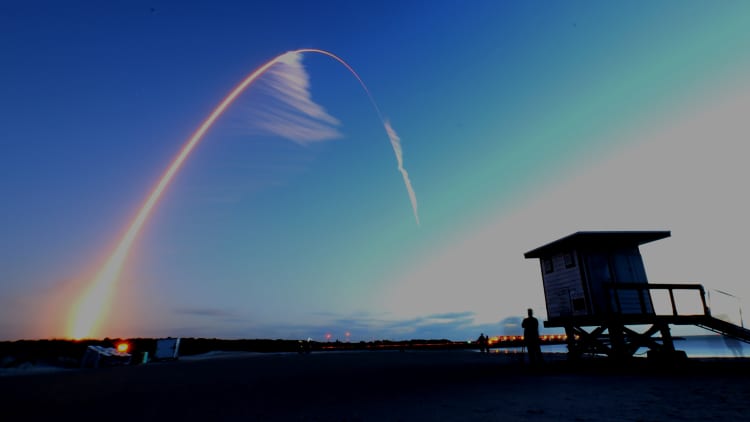
SpaceX got a key government license last week, federal filings reveal, as the company clears a regulatory hurdle that moves it closer to offering a new high-speed internet service from space.
The Federal Communications Commission (FCC) has authorized SpaceX to begin rolling out as many as 1 million of the ground antenna the company will need to connect users to its Starlink satellite internet network. Starlink is SpaceX's plan to build an interconnected network, or "constellation," of about 12,000 small satellites, to provide high-speed internet to anywhere in the world. The company has launched 360 Starlink satellites in the past year.
The license details that each ground antenna is 0.48 meters in diameter, or just under 19 inches across.
"It looks like a UFO on a stick," SpaceX CEO Elon Musk said in an interview earlier this month. "It's very important that you don't need a specialist to install. The goal is for ... just two instructions and they can be done in either order: Point at sky, plug in."
Starlink is intended for about the 3% "hardest to reach customers" for telecommunications companies, in rural areas where "5G is really not well-suited," Musk said. SpaceX intends Starlink to have a high-speed connection for any users, with latency below 20 milliseconds.
Starlink competitor OneWeb may face bankruptcy
OneWeb, a SoftBank-backed competitor of Starlink, is also in the middle of launching its own global satellite constellation. But Bloomberg reported on Thursday that OneWeb is considering filing for bankruptcy, with the report saying the company is facing a cash crunch. OneWeb has raised $3.4 billion to to fund its satellite network, but CEO Adrián Steckel told CNBC in a February interview that the company "is always raising" money.
"We're constantly raising capital," Steckel said, just after the company's second launch. "We're not being public about what we're raising. When the time comes we'll make an announcement."
SpaceX has likewise been steadily raising funds, including $500 million in a round this year. Musk noted in the March interview that there are "zero" similar satellite efforts "that didn't go bankrupt," referring to companies that fell short of building networks in the early 2000s.
"We just want to be in the 'not bankrupt' category, that's our goal," Musk added.
Subscribe to CNBC PRO for exclusive insights and analysis, and live business day programming from around the world.


